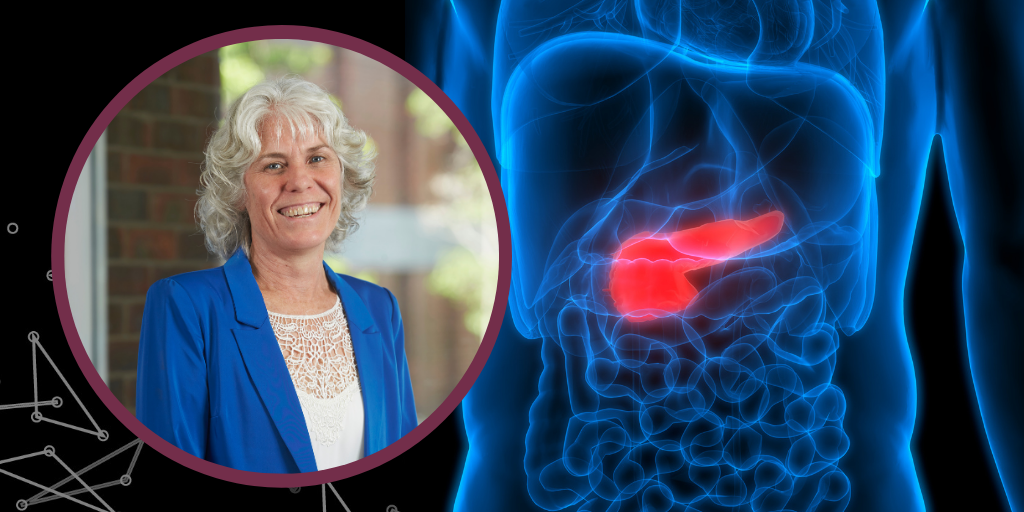Congratulations to Curtin Health Innovation Research Institute (CHIRI) diabetes researcher Dr Gae Ellison, from Curtin University’s School of Molecular and Life Sciences, who has received a $10,000 Early Career Researcher Grant from the Australian Institute of Nuclear Science and Engineering (AINSE).
Gae’s achievement comes with an opportunity to carry out postdoctoral research in collaboration with ANSTO, using the Australian Synchrotron Facility in Melbourne.
Gae will use the synchrotron technology for a detailed investigation of the biometals zinc, copper and iron in islets in the endocrine pancreas.
The powerful synchrotron light source will enable the mapping of these metals within the pancreas without the need for labelling, which can disturb the tissue and is a disadvantage of some other imaging technologies.
Gae is hopeful her work with the facility will uncover new information about the involvement of zinc and other metals in type 2 diabetes.
“This is an exciting opportunity made possible by the expertise of my CHIRI colleague Dr Mark Hackett. Mark is an ARC Future Fellow developing similar synchrotron methods to study the role of metal ions in brain function, and will advise me on my project,” Gae said.
“We know that zinc levels are really high in the pancreas and that this biometal coordinates the storage of insulin within the organ’s beta cells. What we don’t know is how changes in the various biometal pools that exist in the pancreas are significant to diabetes.
“By mapping these biometals in the pancreas, we can better understand their function and role in the health of diabetes patients and, down the track, potentially use this information to explore new therapies to improve health outcomes for people with diabetes.”
Gae’s success brings CHIRI’s total funding from nationally competitive AINSE schemes this year to $33,000. This includes top-up scholarships for PhD students and small grants.
You can read more about Gae and her research in her profile on the CHIRI website.
